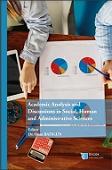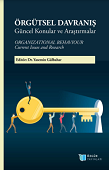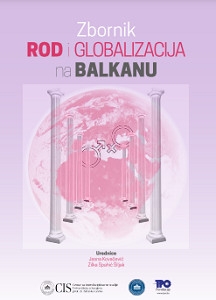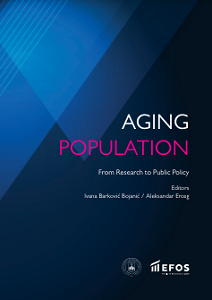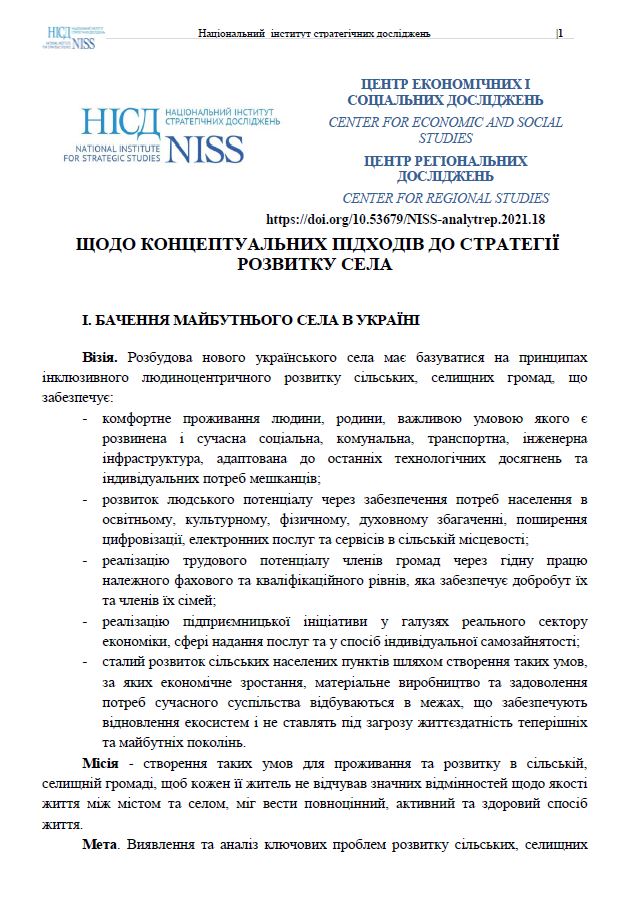
Щодо концептуальних підходів до стратегії розвитку села
VISION: The development of a new Ukrainian village should be based on the principles of inclusive human-centric development of rural, urban communities, which provides: *) comfortable living of a person, family, an important condition of which is a developed and modern social, communal, transport, engineering infrastructure, adapted to the latest technological advances and individual needs of residents; *) development of human potential through meeting the needs of the population in educational, cultural, physical, spiritual enrichment, dissemination of digitalization, electronic services and services in rural areas; *) realization of labor potential of community members through decent work of appropriate professional and qualification levels, which ensures the well-being of them and their family members;*) implementation of entrepreneurial initiative in the real sector of the economy, services and individual self-employment; *) sustainable development of rural settlements by creating conditions in which economic growth, material production and meeting the needs of modern society occur within the limits that ensure the restoration of ecosystems and do not endanger the viability of present and future generations.
More...


